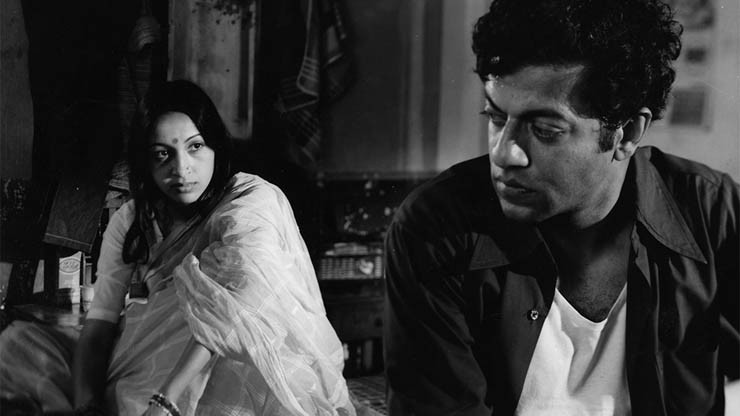
Tracing Girish Karnad’s journey that began with secular traditions and ended with a fight against extremist attitudes

Celebrated Indian playwright, actor, and director Girish Karnad, who passed away recently in his hometown in Bengaluru, grew up in times that were very different from the present day. In his youth, he is supposed to have imbibed secular traditions that underwrote the greater part of Indian intellectual polity at the time, while the extremists were on the fringe. Back then, the liberals and secularists were seen as the champions and true leaders of the independent India, and the fundamentalists were condemned as lunatic, and socially and intellectually marginalised.
Sadly, by the time he died, the secularists were already seen as traitors, betraying the cause of the nation by pretending to be what they were not.
The entire rationale as well as the emotional tenor is now being derived from religion while other strains -- of secularism or of equality -- are seen as foreign constructs or values that were borrowed from other cultures. The basic purpose of it all, to cast the rule by foreigners that had dominated India for almost a thousand years, was not to be seen as resulting in a medley of cultures and religions, languages and rituals, but as the one that was meant to suppress what was local and original to the land. To get rid of such foreign influences, values, and constructs, and to realign the national sentiment along the axis of Hindu religion is now considered paramount.
Karnad was sidelined, just like many others who didn’t side with the growing numbers that had surged into a majority over decades. India as one nation wasn’t seen as homogeneous but multilayered where one person preceded the other and where one camouflaged the other. And people like him were marginalised and driven into the shadows by the mainstream flow of ideas.
Karnad stayed true to his education -- he was a Rhodes Scholar (to Oxford University) -- and values, and did not flinch under pressure which would not only be ideological but also physical. His life was under threat, and he was being maligned and vilified. But he did not agree with the mess around him, in altering the role and contribution of Tipu Sultan, the 19th-century warrior who fought valiantly against the colonial forces and eventually paid the ultimate price.
To most, in the later part of Karnad’s life, Tipu Sultan was seen as a Muslim and so a foreigner, and to celebrate his sacrifices and valiant struggles was to betray the cause of ‘Hindutva.’ You had to be an outsider, and if you fought and lost it must have been for an agenda that the locals would have little sympathy for.
The Pakistani audiences were exposed to Karnad’s works primarily through the ‘parallel cinema’ Hindi movies he made in the 1970s and 80s. This cinema, also called art cinema, had a niche following, and Karnad was seen as among its strong supporters who had little care for the song-and-dance format that characterised the mainstream Bollywood.
But his initial exposure through cinema made the audiences in Pakistan inquisitive -- they wanted to know more about him and realised that his real forte was not cinema but theatre. He was a highly educated person, in general terms, and had been associated with some of the well-regarded institutions of culture. He even came to Pakistan in Pervez Musharraf’s days when there was a sudden thaw in relations and a stream of delegations could cross the borders. This was called ‘backchannel diplomacy’ or confidence-building measures that many saw as the essential first breathing spot on the road to normalisation.
Karnad was more concerned about where he was coming from. Two of his best works are about Tughlaq and Tipu Sultan. He chose these because of their popular rules in the central and southern parts of the Indian subcontinent. Though, the Muslim scholars, historians and culturists have been obsessed with Delhi and Lucknow. Even they treated Bengal as a fantasy and Hyderabad Deccan as a kind of a glorified mutation. But the fact remains that their rule spread far and wide, mostly in areas that had an overwhelming majority of non-Muslims.
His remark that Tipu Sultan was the greatest Kannadiga and so a city airport should be named after him caused uproar. He was vilified and pilloried and had to apologise for the hurt that he might have caused but not for veracity of the remarks.
Most of his works revolved around historical or mythological figures, for he was more interested in discovering the underlying structures and motivational forces in the origin and execution of ideas. For him humans were not uni-dimensional but profoundly complex, driven by impulses that they also did not fully comprehend, and if they did, it was only superficial. Even his films were like journeys into the inner recesses of soul.
After graduation, he went to England and studied Philosophy, Politics, and Economics at Oxford as a Rhodes Scholar (1960-63), earning his MA degree. During his time at Oxford, he was also elected the president of the college union.
His plays have been translated into many Indian languages, and directed by the likes of Ebrahim Alkazi, B V Karanth, Alyque Padamsee, Prasanna, Arvind Gaur, Satyadev Dubey, Vijaya Mehta, Shyamanand Jalan, Amal Allana, and Zafar Mohiuddin. He worked as an actor, director and screenwriter in Hindi and Kannada cinema and won many awards including the Padma Shri, Padma Bhushan, and Filmfare. Of the four Filmfare trophies that he won, three were for Best Director (Kannada) and one was for Best Screenplay.
He was also a presenter on a weekly science magazine programme for Doordarshan, titled ‘Turning Point’ (1991). Besides, he acted as Director of the Film and Television Institute of India (FTII), Pune, and as Chairman of Sangeet Natak Academy.